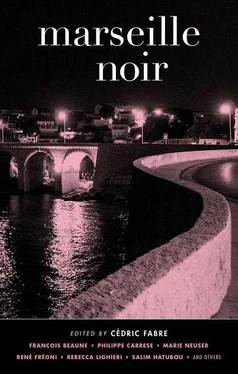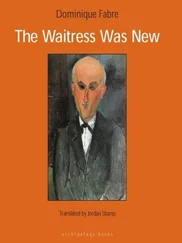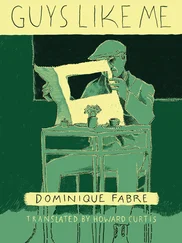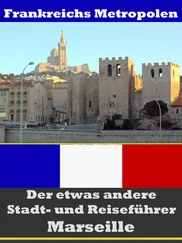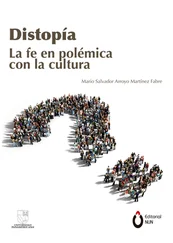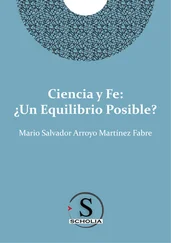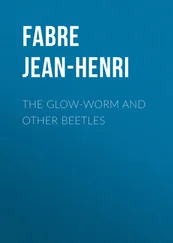Cédric Fabre - Marseille Noir
Здесь есть возможность читать онлайн «Cédric Fabre - Marseille Noir» весь текст электронной книги совершенно бесплатно (целиком полную версию без сокращений). В некоторых случаях можно слушать аудио, скачать через торрент в формате fb2 и присутствует краткое содержание. Год выпуска: 2015, Издательство: akashic books, Жанр: Крутой детектив, на английском языке. Описание произведения, (предисловие) а так же отзывы посетителей доступны на портале библиотеки ЛибКат.
- Название:Marseille Noir
- Автор:
- Издательство:akashic books
- Жанр:
- Год:2015
- ISBN:нет данных
- Рейтинг книги:5 / 5. Голосов: 1
-
Избранное:Добавить в избранное
- Отзывы:
-
Ваша оценка:
- 100
- 1
- 2
- 3
- 4
- 5
Marseille Noir: краткое содержание, описание и аннотация
Предлагаем к чтению аннотацию, описание, краткое содержание или предисловие (зависит от того, что написал сам автор книги «Marseille Noir»). Если вы не нашли необходимую информацию о книге — напишите в комментариях, мы постараемся отыскать её.
Marseille Noir — читать онлайн бесплатно полную книгу (весь текст) целиком
Ниже представлен текст книги, разбитый по страницам. Система сохранения места последней прочитанной страницы, позволяет с удобством читать онлайн бесплатно книгу «Marseille Noir», без необходимости каждый раз заново искать на чём Вы остановились. Поставьте закладку, и сможете в любой момент перейти на страницу, на которой закончили чтение.
Интервал:
Закладка:
I absolutely had to meet the woman who was projecting those images. I had questioned a kid with wolfish eyes. He’d only said: “Ask the fat guy at the Cité Phocéenne, the dive in the container on esplanade J4. You can’t miss it.”
True enough. On one side of the container, there was an inscription in red paint: Cité fausse et haine—a pun on Marseille’s nickname, la cité phocéenne.
The fat guy’s gaze wandered off into space.
“That doesn’t seem like a fair deal to me,” I said.
“I know where she’ll be tonight.”
I turned around. It was the girl who’d said these words in a gravelly voice. She had just gotten up and was stretching.
“I could’ve gotten this info without you, it’s not exactly worth my Keith’s ring, is it?”
“Take the wheat-sucker with you, she’s yours. ”
I sighed and left. The mistral had risen. The girl caught up to me.
“Why does he refer to you as the wheat-sucker?” I asked.
“That’s what they called the pipes that pumped the grain directly into the holds of ships to transfer it into the silo. Like thick metal straws.”
“You live in a container too?”
“Here and there. I get by.”
Ever since city hall announced the shutdown two months back, there had been no public services. The unemployed no longer got their benefits, landlords evicted them, and in a matter of days there’d been hundreds of them flocking from the three cardinal points of the city; the fourth was the west, the horizon. Because if disaster was on the way, salvation was always the sea, they thought. Whole families had moved into those containers that a street-art company had placed there for some kind of event. The boxes had served as restaurants, bars, venues for art shows, even a hairdresser’s salon. Once the event had ended, everybody cleared out, but the cranes never showed up; the containers stayed and then were squatted and transformed into real pads, complete with mattresses, sometimes a table, and even knickknacks. I had even seen ex-votos hanging inside as decoration, probably stolen from the Cathédrale de la Major. Between the boxes, in the alleys, the residents would meet around improvised tables to drink pastis, gossip, or rail against continental Europe. There was a recent announcement that an early municipal election was coming. Perpetually drenched in sweat, the opposition candidate was out campaigning, mingling with the crowd, promising jobs and clean sidewalks. He wanted to be the mayor of Marseille so badly that he never failed to mention his Italian roots. I thought to myself, In this country it’s always the children of immigrants who get the worst jobs.
I had been hanging around the “village” for three days, between the esplanade, the site of the new museums — including the MuCEM, closed like all the others — and the cathedral, and also between the docks and place de la Joliette. I had to get my hands on that video they wanted me to find.
“They” had called me directly at the paper where I wrote the culture column. It was one guy, actually, but he was only the messenger, as I quickly realized. A wheezing voice, slow speech. A threatening tone, an allusion to my poor mother who was losing her memory little by little in an old people’s home.
“A videotape’s going around the docks, from VCR to VCR. It’s in the hands of a woman, an artist. You can see two well-known soccer players on it. You have four days to get hold of it. We’ll call back.”
I objected that I was neither an investigator nor a private detective and they were mistaking me for someone else, but the guy insisted, emphasizing my excellent “networks” in the world of culture and art. I had resigned myself to it, thinking of my mother and telling myself that it wouldn’t be the first time in this city that a guy did a job for which he was neither qualified nor competent. I had vaguely deduced that the people behind this had their eyes on city hall too, or interests to defend. And the contents of the tape would help them, or ruin their ambitions if it fell — or had already fallen — into the wrong hands.
A man with a black eye was stationed in front of the half-open door of a container, guarding the entrance. You could hear children crying inside. I saw black marks on his knuckles, crusts of dried blood. He must have fought for the container. Shoes, stoles, caps, dolls, and gutted handbags were strewn around the waterfront.
“You could at least answer me. What’s your name?”
The wheat-sucker. I’d almost forgotten her. I was walking mechanically toward place de la Joliette. She took my hand.
“I’m going with you. You’ll have a hard time finding Phocéa. She’s in hiding.”
“Thanks for your help. Just call me the olive-pitter and we’ll be even.”
She laughed and squeezed my arm until I stopped walking. She drew her face near mine and put her hands on my shoulders. I felt her warm breath in my ear and on the nape of my neck.
“I know where Phocéa’s going to be this evening,” she whispered. “In the silo d’Arenc for the big multicultural party. Can I take you there? You’re not a fucking racist, are you?”
“Just a bit, like everyone else: if we could choose, we’d all rather be Thai and invent the massage rather than English and invent the muffin, right? But it never came up: I’m from la Treille.”
Marseille was supposedly made up of 111 villages that in reality never quite managed to get together and form a city; the village of la Treille was the gateway to Provence. Hills and scrubland. All through my childhood, I’d trapped rabbits and shot farm pheasants that the hunters had missed. A real Pagnol childhood. Except that “the glory of my father,” to use Pagnol’s title, could be summed up by the fact that he disappeared one day, dumping us, my mother and me, with a note of apology. His garage had failed and he chose to run away rather than commit suicide, he wrote. In short, adventure and the open sea: I could read between the lines. He had always preferred the beat poets and psychedelic rock to Provençal writers and Occitan folk musicians. I learned later that he had shipped out on a freighter and I never saw him again. After that, I discovered the punk scene, which led me to the university, probably due to misunderstanding the words of The Clash’s “Career Opportunities.”
But even immersed in the world of art galleries and the rock and theater scenes, I had still remained a kid from the land at heart: I hated the sea, I never ventured into the neighborhoods around the port, never went to the beach, and I still didn’t know how to swim. For me, the port was the last frontier. Beyond, toward the horizon, lay a wild and hostile world.
“The port used to be the heart of the city back in the day,” said the sucker, as if she had been reading my thoughts. “The nucleus of the atom of the planet Mars, to quote the famous rap song. A multimodal terminal for all the human odysseys of the Mediterranean.”
A bit farther, you could see the huge construction site, the cluster of cranes and machines — a perfect square that already had a name: Les Terrasses du Port. It was a future mall, part of a plan aimed at “giving the sea back to the people of Marseille.” Who took it away from them? I turned my head toward the open sea, toward that dark mass on which the dazzling white foam stood out; it seemed to jump up and bite before the swell swallowed it up again. The sea was anything but a symbol of freedom, it had always been nothing but a grave filled with wrecks and the only islands you could make out from here were the Château d’If, where the Count of Monte Cristo had been imprisoned, and the Frioul archipelago, which had been used to quarantine ships for centuries.
For the last few days, I had been sensing a sort of pressure under my feet. The port was giving me the feeling of a tragic ending. Too many trials and tribulations that wouldn’t find their end here, I imagined. People came from the other end of the Mediterranean and crashed here. The piers looked like ramparts, everything was fenced off, it was a closed space that had stolen longshoremen’s lives day after day, grinding down the guys they called “waterfront dogs.” It was a sick tangle of rails and footbridges that went nowhere, a kind of spiral, a siphon that would bring everything back to the sea and empty itself into it.
Читать дальшеИнтервал:
Закладка:
Похожие книги на «Marseille Noir»
Представляем Вашему вниманию похожие книги на «Marseille Noir» списком для выбора. Мы отобрали схожую по названию и смыслу литературу в надежде предоставить читателям больше вариантов отыскать новые, интересные, ещё непрочитанные произведения.
Обсуждение, отзывы о книге «Marseille Noir» и просто собственные мнения читателей. Оставьте ваши комментарии, напишите, что Вы думаете о произведении, его смысле или главных героях. Укажите что конкретно понравилось, а что нет, и почему Вы так считаете.
